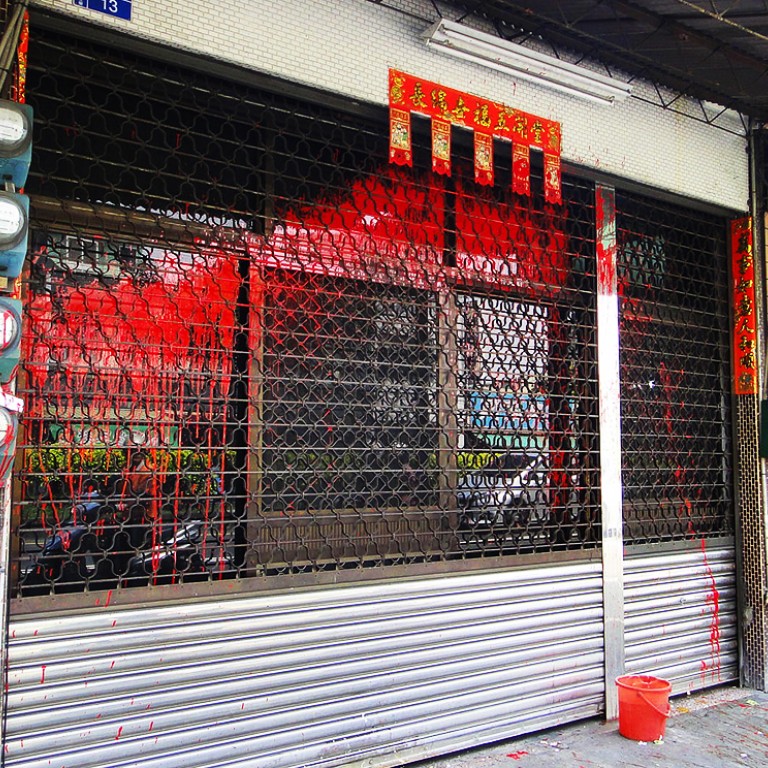
Update | Taiwan's 'gutter oil' scandal grows with further 195 firms said to have used product
Scandal grows as Taiwanese officials can't rule out that HK, mainland firms might be affected
Taiwan's "gutter oil" scandal continues to grow, with a further 195 food manufacturers identified as having used recycled oil, on top of 235 companies identified earlier.
As of its latest count, the Food and Drug Administration said on Sunday that 933 restaurants, bakeries and food plants, including 397 in Taipei city, had used the tainted oil supplied by Chang Guann.
The island's Food and Drug Administration would not rule out the possibility Hong Kong and the mainland were affected.
"According to our latest findings, so far 40 of the 235 companies [earlier found to have] bought the oil in question were found to have used it to produce or process into 110 kinds of products," Yeh Ming-kung, head of the administration, said.
One company, Gassho, bought 69 tonnes of the oil from Chang Guann, the Kaohsiung-based supplier of lard and cooking oil at the centre of the scandal.
Chang Guann bought at least 240 tonnes of the gutter oil - recycled from kitchen waste, by-products from leather processing plants and offal from slaughterhouses - from an unlicensed factory in Pingtung at below-market rates, police have said.
"We do not rule out the possibility of it being sold outside Taiwan, including Hong Kong and the mainland," one official said.
At least 10 Taiwanese food companies have subsidiaries or products marketed on the mainland, according to the Economic Affairs Ministry.
Hong Kong officials yesterday named one more company as suspected to have sold products containing the oil, taking to at least three the number affected by the food scare. An edible oil distributor, Shing Cheung, was suspected to have distributed lard imported from Chang Guann, a spokesman for the city's Centre for Food Safety said.
The two companies named earlier, Dah Chong Hong and Maxim's, said the oil they bought from Chang Guann came with quarantine certificates issued by the Taiwanese authorities.
Nevertheless, both companies said they would withdraw from sale products made with Chang Guann oil.
Chang Guann has apologised but said it was unaware the oils were recycled. So far the authorities have seized 49 tonnes of suspected recycled oils from Chang Guann.
Secretary for Food and Health Dr Ko Wing-man said investigations would be difficult and time-consuming because the tainted oil could have been used in a wide variety of products that were sold widely.
The scandal emerged after police busted an underground factory processing the recycled oil in the southern county of Pingtung on Monday. A district court there on Saturday ordered the owner of the workshop, Kuo Lieh-cheng, detained after determining he was a flight risk.
“As he is likely to flee or conspire with other suspects, we decided to take him into custody,” said Pan Cheng-ping, spokesman for the Pingtung district court.
Prosecutors had filed a complaint after the 32-year-old was released last week on bail of NT$50,000 (HK$12,900) as concern grew over the food scare.
Television footage showed Kuo’s home in Pingtung city pelted with eggs and red paint by angry protesters.
Five other people implicated in the case have also been questioned and released on bail. If charges are brought, the culprits could face fraud charges as well as a fine of NT$50 million for violating food safety law.
Experts estimate at least half of Taiwan's 23 million people have consumed products containing the recycled oil, but in such small amounts that it is unlikely to pose a health threat.
Wei Chuan Foods, the Taiwanese unit of Ting Hsin International Group which owns the Master Kong instant noodle brand, said it had recalled 12 types of products including meat paste and pork floss since late on Thursday which may have used the recycled oils.
With additional reporting from Agence France-Presse


